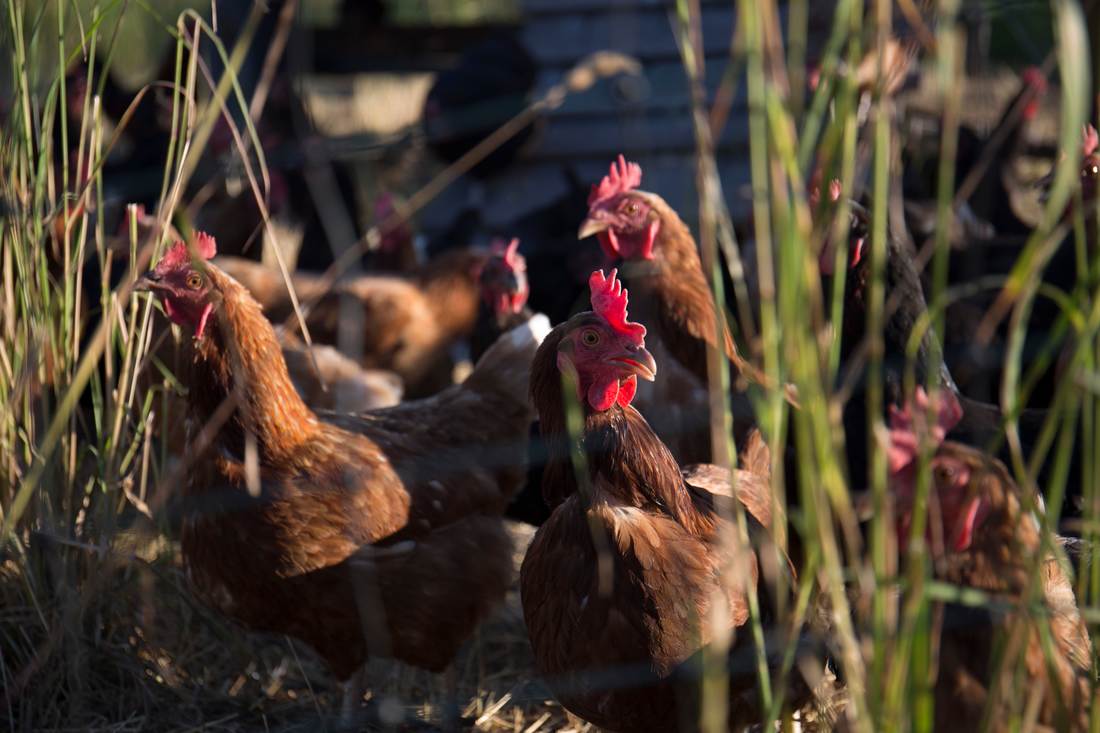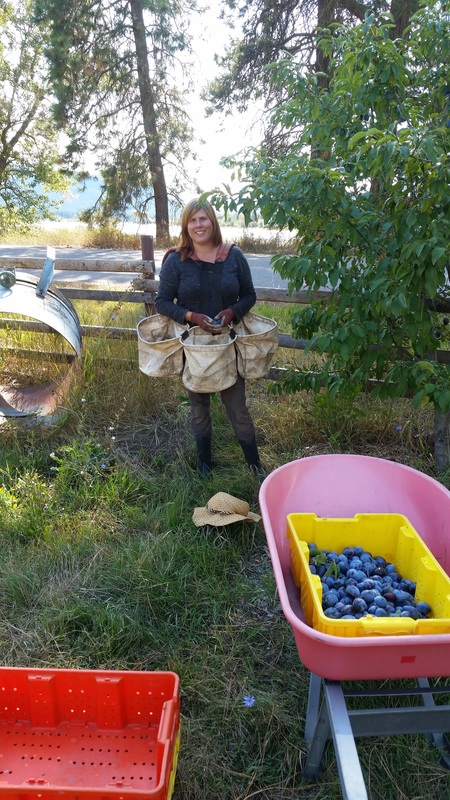|
Like most great adventures in life, our journey into organic farming, and the culture and community surrounding it, was both intentional and seemingly unforeseen. When my partner, and fellow farm intern, Nick and I started our internship at Golden Ears Farm, we really had no idea where it would take us, or how it would change (for the better!) our lives, but it surprised and inspired us in so many ways. We started off our adventure as two young city folk who really just wanted a change. A change from, well -- everything we had grown up knowing. Neither of us had ever worked on a farm, and yet deep down something inside of both of us kept saying, "You need to re-establish your connection with the earth" and eventually that yearning led us to seek out a place to begin our education, and Golden Ears Farm was that place. In the middle of May, we began our farm education with transplanting onions! We planted the little sprouted alliums in tidy rows in the field, and after a long day of kneeling in the ground, I wondered to myself if my aching hips and legs would ever recover! But they did! And as the spring went on, and the summer followed, we found ourselves caught up in all the busyness and joy of high summer. We watched as the tiny cucumber plants we had transplanted into the green house thrived and became an impenetrable jungle, we picked buckets of beautiful raspberries, feasted on juicy strawberries, and weeded -- a lot. We never quite ended up beating the weeds. We learned quickly that in farming, nature does not wait for you, it simply happens. Summer felt like a marathon that we could never really finish, but we also learned to come to terms with that. The list never ended, but that was okay, because we were enjoying life as it came. Soon we were picking what seemed like endless prune plums, reaping the first ripe fruits of all the tomato plants we had planted, caged, tied, and weeded, and we were beginning to count down the weeks left in the CSA box program. For the first summer in my life, I felt attuned to nature's rhythm; something I feel incredibly grateful to have been able to experience.
The lessons of farm life were not just confined to the food we grew, however, there was much more. Perhaps, most importantly, that community still exists in our ever increasingly detached society. Nick and I had come into our internship craving a feeling of belonging to something larger and more important than just ourselves, and we found it at Golden Ears Farm. We went on farm tours, helped out at other farms, enjoyed fantastic socials and potlucks and established connections that we hope will last for life. For two former apartment dwellers who never once saw, or talked to their neighbors, this was a pretty special and significant lesson. After six months that spanned three seasons, each with their own distinct highlights and trials, and moments of incredible beauty, our time at Golden Ears was winding down. We harvested the root vegetables, planted next year's garlic, and experienced the bittersweet transition when all life on the farm has come full circle, from greens, to trees, to roots, to livestock. Everything came and passed, including our time at the farm. We left this very special place feeling incredibly thankful for our experience, which not only got our life in organic agriculture started, but also provided us with the change we had been seeking for so long. We now count ourselves among the growing movement of young people trading in city life for a completely different experience, becoming young agrarians, and discovering how to live more sustainably. We are pretty happy we made the jump!
0 Comments
My Internship at Golden Ears farm was all I could’ve asked for coming from the Sustainability program at Dalhousie University, where I learned about the pressing issue of rapid climate change and humanity being the driving force behind it. The program was a more holistic approach to education than I had ever experienced by bringing in professors from a diverse set of disciplines to share their perspective. The program thoroughly explained the history, challenges, and future implications for dealing with climate change.
I was then motivated to start getting my hands dirty and learn some hands-on skills and figured organic farming was the most important action to take as the majority of greenhouse gases are a result of the widespread transition to an industrialized food system. Many of us have assumed that climate change is only due to our rapid transportation around the world, which in a large part it is -- but I was surprised by how crucial the state of our food system is to climate change. Food production requires our most precious resource in water, and our time and energy at the organic level. As you go up the industrial scale, however, with the use of tractors, pesticides, chemical fertilizers and other intensive inputs (which increases the volume of work that can be done in the same amount of time), something is lost in quality and the combination of increased inputs and mechanization contributes a great deal to greenhouse gas production. While working at Golden Ears I was able to put an image to the quantity of water it takes to grow food and saw a great example of the importance of diversity being the key to climate change resilience. The consequences of climate change are quite hard to predict and will fluctuate through the seasons and years, as I saw when I arrived back in Ottawa with the non-native emerald ash borer wiping out most of the ash trees. The best way to combat this uncertainty is to diversify, as some crops might struggle while others will succeed. Golden Ears was a great example of how we can succeed through the challenges of climate change by creating whole systems that take into account many factors that are too often forgotten in the industrial process, where temporary fixes are the response to problems that inevitably arise. |

Photo credit: Martín Bustamante
Archives
June 2020
Categories |

 RSS Feed
RSS Feed
